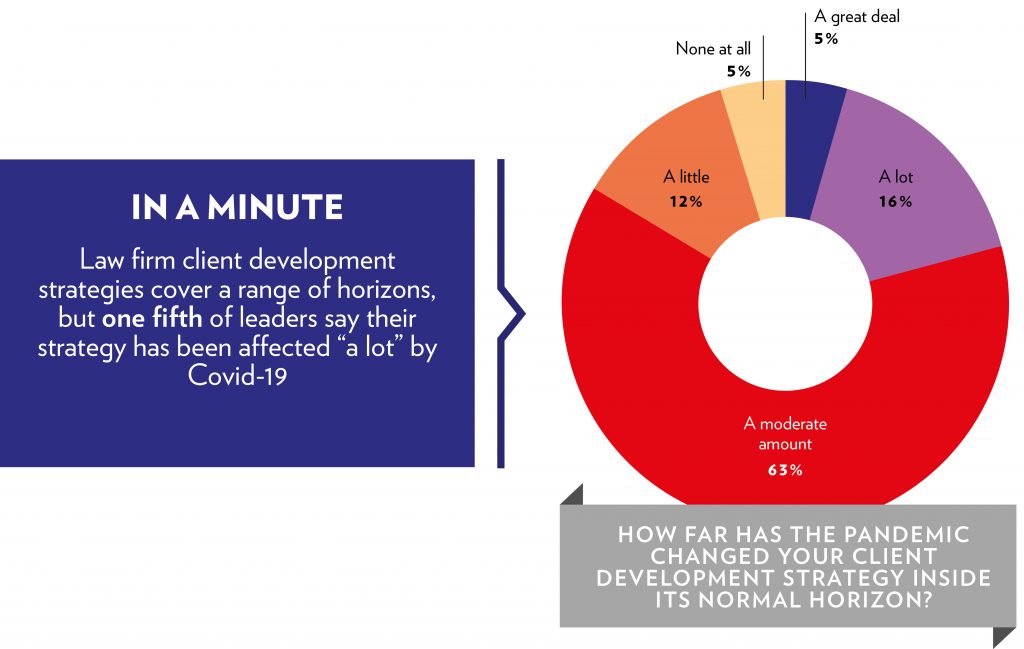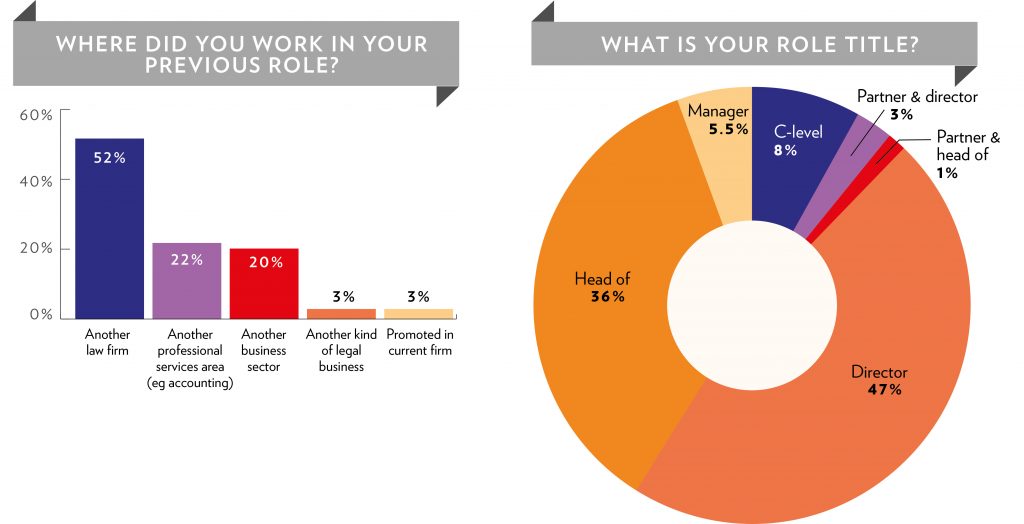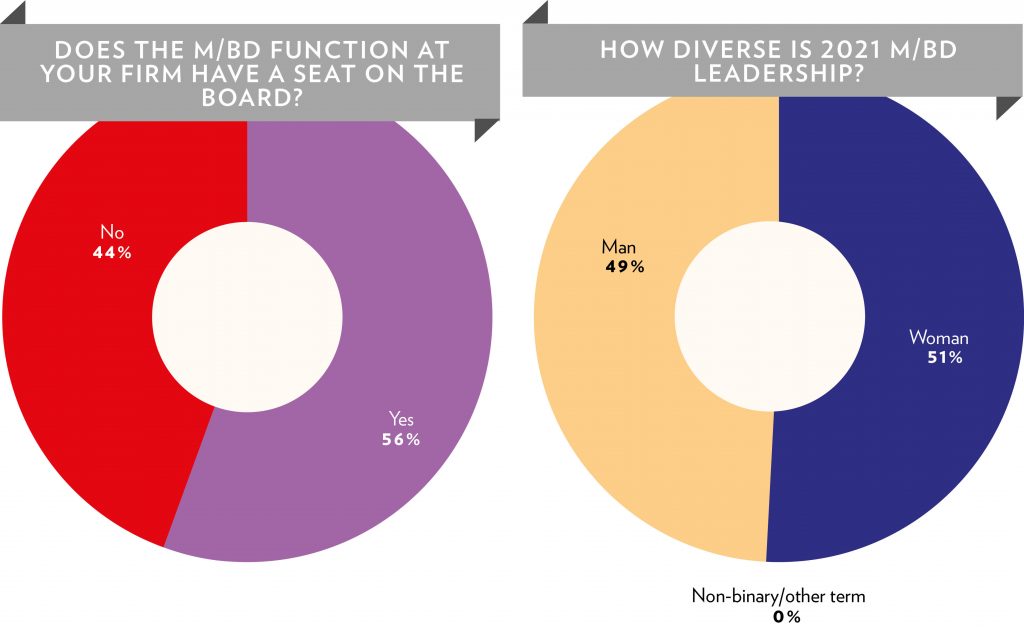INSIDE
How has the world of the law firm marketing and business development leader changed during a year of unprecedented disruption?
WHAT'S ALL THIS?
More than half of Briefing law firm business development and marketing leaders in 2021 tell us that this business area now has a seat on the firm’s main board – and if we can say one thing, it has certainly been a year during which BD strategy and delivery has needed some intense attention.
Client-listening skills have surely never been more important, and the big pivot to digital was suddenly upon us. Indeed, 84% of leaders say their client development strategy has been changed by the Covid-19 and remote-working experience, either moderately or a lot (p7). At the same time, almost three-quarters of leaders are seeing an increase in demand from clients for firm-made solutions that deliver them value, such as through requests for proposal, and two-thirds are getting quite involved in the creation, testing, communication and selling of such solutions (p13). It’s somewhat reassuring perhaps that one thing hasn’t changed – client relationship management (CRM) remains a space with plenty of room for future process improvement (p14).
How much has the pandemic changed your client development strategy inside its normal horizon?
Law firms are sending a clear signal around how Covid-19 has affected their plans, with 95% of leaders reporting that this strategy has been changed by the events of the pandemic – with a fifth (21%) saying by ‘a lot’ or ‘a great deal’.
Who are today’s leaders and where have they come from?
Almost half of respondents to our poll this year (47%) are a director, with a third (36%) enjoying ‘head of’ status instead. The proportion with a ‘C-level’ title such as chief marketing officer is practically unchanged (8%, compared with 9% when we last asked for the information in early 2020).
Does the M/BD function at your firm have a seat on the board? How diverse is 2021 M/BD leadership?
Over half (56%) of M/BD departments now have a seat on the board, an increase on 45% when we polled in 2020, perhaps suggesting growing recognition of the role’s strategic value.










